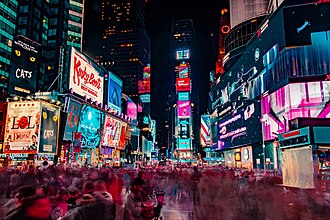
Back مناهضة النزعة الاستهلاكية Arabic Антиконсуматорство Bulgarian Anticonsumisme Catalan Konsumverweigerung German Anticonsumismo Spanish ضدمصرفگرایی Persian Anticonsommation French Anticonsumismo Galician אנטי-צרכנות HE Anti-konsumerisme ID

| Part of a series on |
| Anti-consumerism |
|---|
Anti-consumerism is a sociopolitical ideology. It has been defined as "intentionally and meaningfully excluding or cutting goods from one's consumption routine or reusing once-acquired goods with the goal of avoiding consumption".[1] The ideology is opposed to consumerism, being a social and economic order in which the aspirations of many individuals include the acquisition of goods and services beyond those necessary for survival or traditional displays of status.[2]
Anti-consumerism is concerned with the actions of individuals, as well as businesses where they act in pursuit of financial and economic goals at the expense of the perceived public good. Commonly, anti-consumerism is connected with concern for environmental protection, anti-globalization, and animal-rights. Post-consumerism, the prioritization of well-being over material prosperity, is a related ideology.[3]
- ^ Cite error: The named reference
:1was invoked but never defined (see the help page). - ^ Stearns, Peter (2001). Consumerism in World History. Routledge. ISBN 9780415244091.
- ^ "Postconsumers". Postconsumers. 2018-06-13. Retrieved 2018-10-18.
© MMXXIII Rich X Search. We shall prevail. All rights reserved. Rich X Search